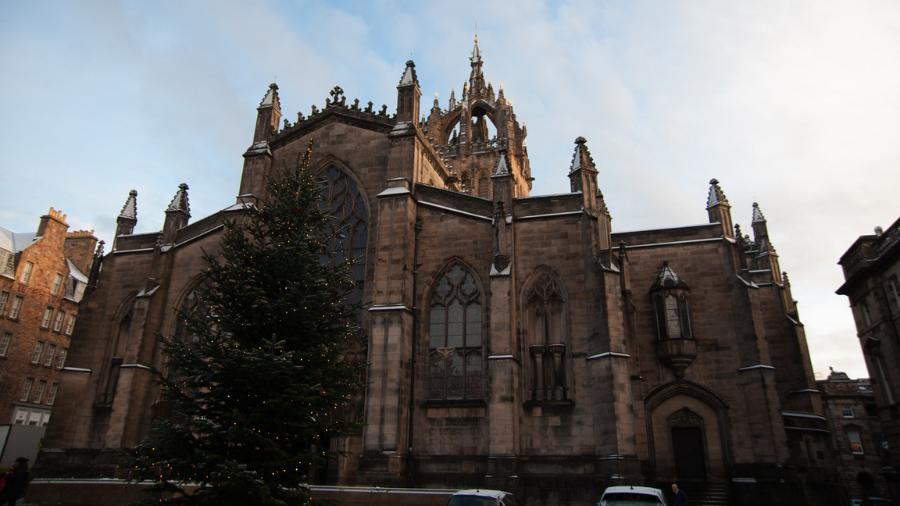Why Christmas Was Banned in Scotland for 4 Centuries
3rd Dec 2024Explore the secrets of the city’s past on an Edinburgh history tour and hear the stories of rebels, royals and everyday people.
The ban on Christmas was a very real thing in Scotland, and it changed the way we celebrate Hogmanay, or New Years. Today, we decorate trees, count in the new year and sing Auld Lang Syne. But where did these traditions come from?
For 400 years, Christmas (or Yuletide) was heavily affected by the religious tensions of the 16th-century Scottish Reformation.
At one point, people caught celebrating the holiday could be imprisoned. There would have been no Edinburgh Christmas Market, no Christmas tree, no Yule Bread.
Watch our video below to learn about the origin of Christmas, the history of the Christmas tree and Scottish traditions at Hogmanay. Then, read on to find out how this ban on Christmas affected the people of Scotland.
The origin of Christmas & the Scottish Reformation
When Vikings started to arrive in Scotland towards the end of the 8th century, they brought with them a Pagan belief system which included a tradition named Yule, celebrated during the winter solstice.
This name spread throughout Scotland and Yuletide was adopted as a feasting day in the calendar of the Roman Catholic Church. However, it wasn't any more important than any other annual feasting day, and was even less prominent than Easter.
Some of the celebrations that were common at this time are still prevalent today, such as kissing under the mistletoe and burning a log from a Yule tree.
It was thought to bring good luck if the log burned throughout the twelve days of Christmas, but bad luck if it went out.
However, during the Scottish Reformation in the 1560s, Scotland split from the Papacy and adopted more Calvinist traditions.

Under Scotland's new belief system, the celebration and its traditions were deemed too excessive. The festivities were phased out and the Scottish Parliament officially passed a law that made celebrating Yule vacations illegal in 1640.
With Christmas banned, celebrating the holiday could lead to imprisonment and even an act as simple as singing a carol or baking Yule bread was seen as a violation.
Was anyone actually arrested?
You may be wondering if anyone was actually arrested for celebrating Christmas. The answer is yes and there are records to prove it.
Notes taken from a Glasgow Church session in 1583 reveal how five individuals were made to repent for celebrating Yule. In another event, in the Glasgow Cathedral, those celebrating Yule were excommunicated.
In another act towards banishing Christmas, several people in Aberdeen were also ordered to repent for singing 'filthy Christmas Carols'.
The Christmas ban lifted
Despite the attempts to quash Christmas, it slowly eased its way back into Scottish traditions.
As early as the 18th century people had gradually started to celebrate again behind closed doors. In 1841, the first Yuletide Card in the UK was displayed in a shop window in Leith. During Queen Victoria’s reign, the Christmas tree came into popular fashion.
However, despite the gradual increase of celebrations in private, Christmas was not freely celebrated again until it was re-listed as a public holiday in 1958. Hence, it would have still been rare to witness anyone publicly celebrating the tradition a little over fifty years ago.
Uncover Edinburgh’s past on a history walking tour. Explore the city and discover its hidden gems.

